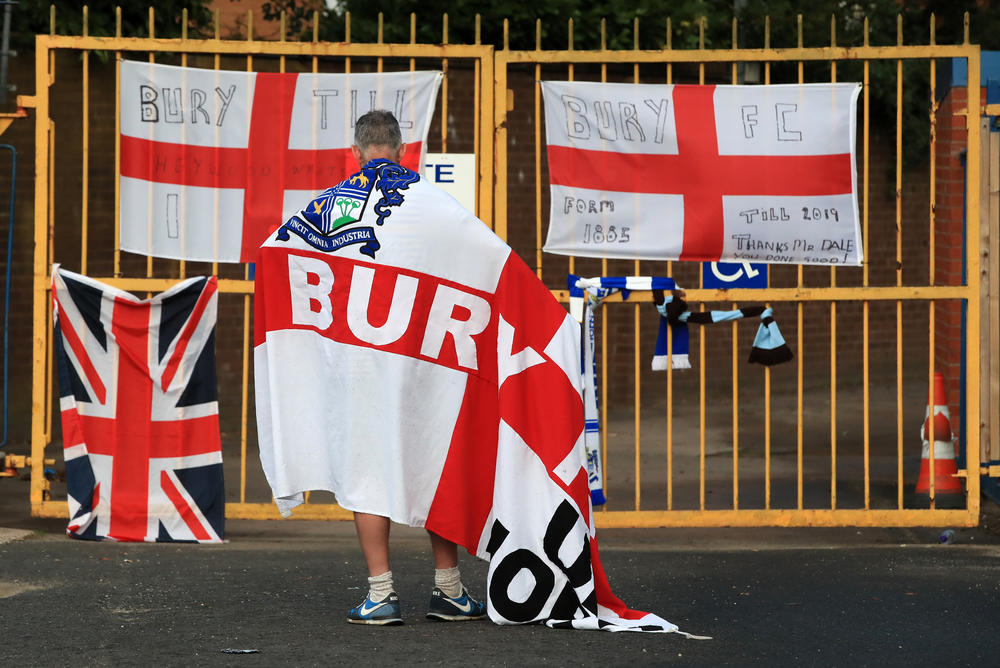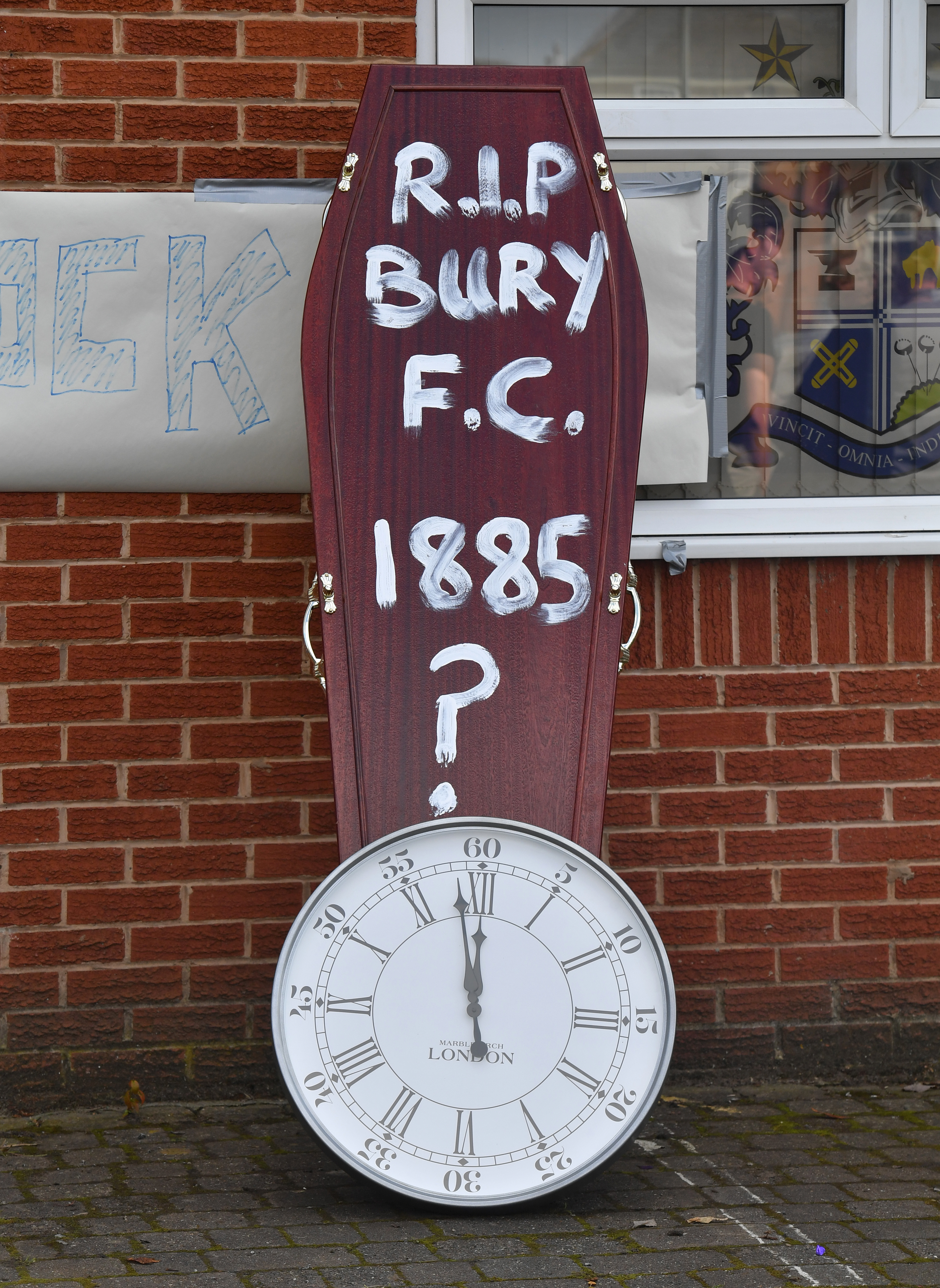Report into Bury demise raises ‘serious issues’ with EFL’s financial regulations

An independent report into the demise of Bury FC has raised serious questions over the EFL’s financial regulations.
The League One club were kicked out of the competition in August last year after the Shakers’ owner Steve Dale failed to provide financial guarantees to the EFL and a late takeover bid collapsed.
Last month, the EFL released a summary of a report from leading sports lawyer Jonathan Taylor QC which concluded that no “additional action” from the league would have made any material difference.

But the full report has now been released, and in it Taylor raises “serious issues” with the EFL regulations which contributed to Bury’s collapse.
Taylor’s report raises questions in four key areas: the suitability of the Owners and Directors Test (OAD); rules which permit the sale of clubs without new owners needing to prove financial viability; rules allowing League One and League Two clubs to rely on financial injections to stay afloat; and a lack of regulations preventing loans being taken out against stadiums and training grounds.
While clubs in the Championship follow a set of regulations closer to that in the Premier League, in League One and League Two clubs are able to rely on Football Fortune Income, which can include owner injections, provided this is laid out to the EFL in advance.
Taylor noted that Bury’s costs ballooned between the 2013/14 season and 2017/18 to the extent that then owner Stewart Day injected £6.65million into the club to keep it afloat during that period, £2.65million of that in 2017/18 alone.
Get FourFourTwo Newsletter
The best features, fun and footballing quizzes, straight to your inbox every week.
“Whether or not this approach of relying on owner funding is sustainable or sensible is outside the scope of this review, but I would urge the EFL Board and the Clubs to look very closely at this issue,” Taylor wrote.
“It seems to me that this is the root cause of most of the problems seen in the Bury FC case. If so, dealing with the other regulatory issues exposed by this case, but not this one, will not solve the problem.”
Taylor also questioned the value of the OAD Test given it does not require proof of funds, and does not raise concerns over bankruptcies at a potential director’s former businesses unless it was within football.
Taylor noted that “it has been reported that as many as 43 of 51 companies that Mr Dale has been linked with have been liquidated” – with 30 of those confirmed by Companies House – but that this is not a disqualifying condition under the OAD Test.
“There is no doubt that the EFL applied the OAD Test properly in relation to Mr Day and Mr Dale,” Taylor wrote. “The question is whether the test as currently written is fit for purpose.”
⚪️🔵 Everyone at #buryfc are overwhelmed with the support shown for us up and down the country, from the Premier League all the way down the pyramid, thank you to all the #footballfamily#thislovewilllastforever 💙 pic.twitter.com/CZefmvZ6KI— Bury Football Club (@buryfcofficial) August 31, 2019
The EFL has said that, under the terms of reference, Taylor was not required to make any recommendations for potential changes to the league’s regulations.
However, observations made by Taylor will, the league said, feed into ongoing reviews of cost control measures in the three divisions.
In his report, however, Taylor questioned the willingness of clubs to advance reforms.
“To be fair to the EFL Board and the EFL Executive, they have previously raised many of these issues, but found no support from the Clubs for changes to the Regulations to address them,” he wrote.
FourFourTwo was launched in 1994 on the back of a World Cup that England hadn’t even qualified for. It was an act of madness… but it somehow worked out. Our mission is to offer our intelligent, international audience access to the game’s biggest names, insightful analysis... and a bit of a giggle. We unashamedly love this game and we hope that our coverage reflects that.

